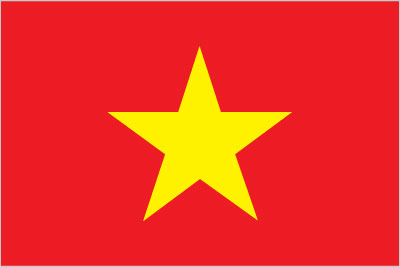Tourist visas allow visitors to enter and exit Vietnam at Hanoi, HCMC and Danang airports airports or at any of its plentiful land borders, shared with Cambodia, China and Laos.
Tourist visas are valid for a single 30-day stay. The government often talks about issuing visas on arrival to certain favoured nationalities, but as yet this sensible scheme has failed to materialise beyond the immediate Asean neighbours. Arranging the paperwork for a Vietnamese visa has become fairly straightforward, but it remains expensive and unnecessarily time-consuming. Processing a tourist-visa application typically takes four or five working days in countries in the West.
It is possible to arrange a visa on arrival through a Vietnamese travel agent. They will need passport details in advance and will send a confirmation for the visa to be issued at your airport of arrival.
In Asia the best place to pick up a Vietnamese visa is Cambodia, where it costs around US$30 and can be arranged the same day. Bangkok is also a popular place as many agents offer cheap packages with an air ticket and visa thrown in.
If you plan to spend more than a month in Vietnam, or if you plan to exit Vietnam and enter again from Cambodia or Laos, arrange a three-month multiple-entry visa. These cost around US$95 in Cambodia, but are not available from all Vietnamese embassies.
In our experience personal appearance influences the reception you receive from airport immigration – if you wear shorts or scruffy clothing, or look dirty or unshaven, you can expect problems. Try your best to look ‘respectable’.
Business visas
Business visas are usually valid for three or six months, and allow multiple entries and the right to work. Getting a business visa has now become cheap and easy, although prices are about double those of a tourist visa. It is generally easier to apply for a business visa once in Vietnam, after having arrived on a tourist visa. Or pick one up in Cambodia.
Re-Entry Visas
It’s possible to enter Cambodia or Laos from Vietnam and then re-enter without having to apply for another visa. However, you must apply for a re-entry visa before you leave Vietnam. If you do not have a re-entry visa, you will have to go through the whole visa process again.
Re-entry visas are easiest to arrange in Hanoi or HCMC, but you will almost certainly have to ask a travel agent to do the paperwork for you. Travel agents charge about US$25 for this service and can complete the procedure in a day or two.
Student Visas
A student visa is usually arranged after your arrival. It’s acceptable to enter Vietnam on a tourist visa, enrol in a Vietnamese language course and then apply at the immigration police for a change in status. In reality, the easiest way to do it is to contact a travel company and have them help you make the application.
Visa Extensions
If you’ve got the dollars, they’ve got the rubber stamp. Tourist-visa extensions officially cost as little as US$10, but it is easier to pay more and sort this out through a travel agency. Getting the stamp yourself can be a bureaucratic nightmare. The procedure takes two or three days and you can only extend one time for 30 days.
In theory you should be able to extend your visa in any provincial capital. In practice it goes smoothest in major cities, such as HCMC, Hanoi, Danang and Hue, which cater to regular visitors.
